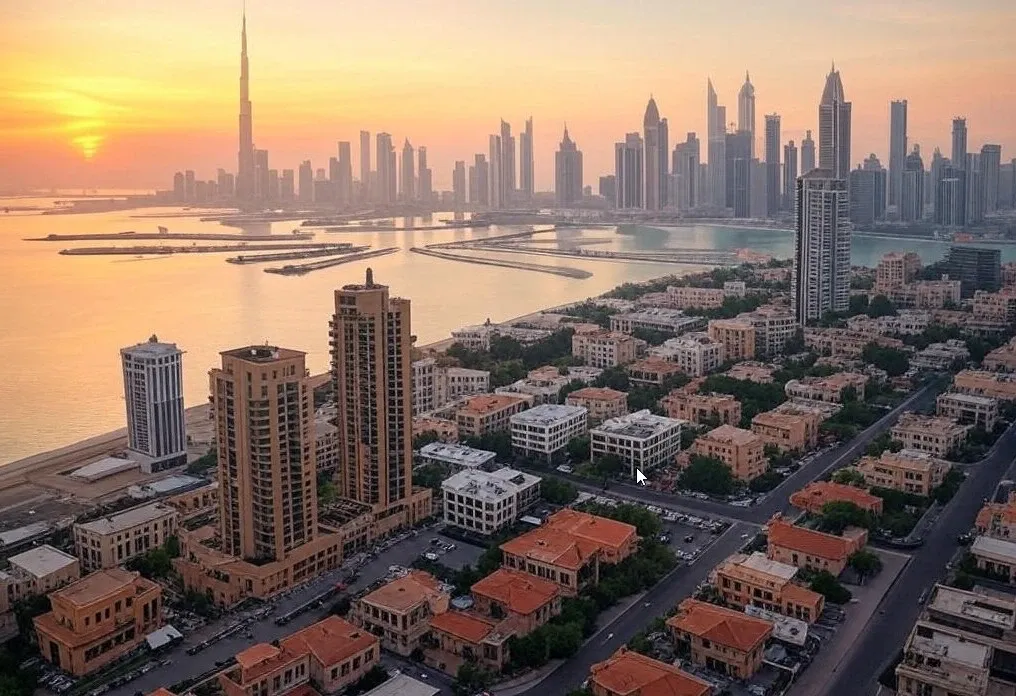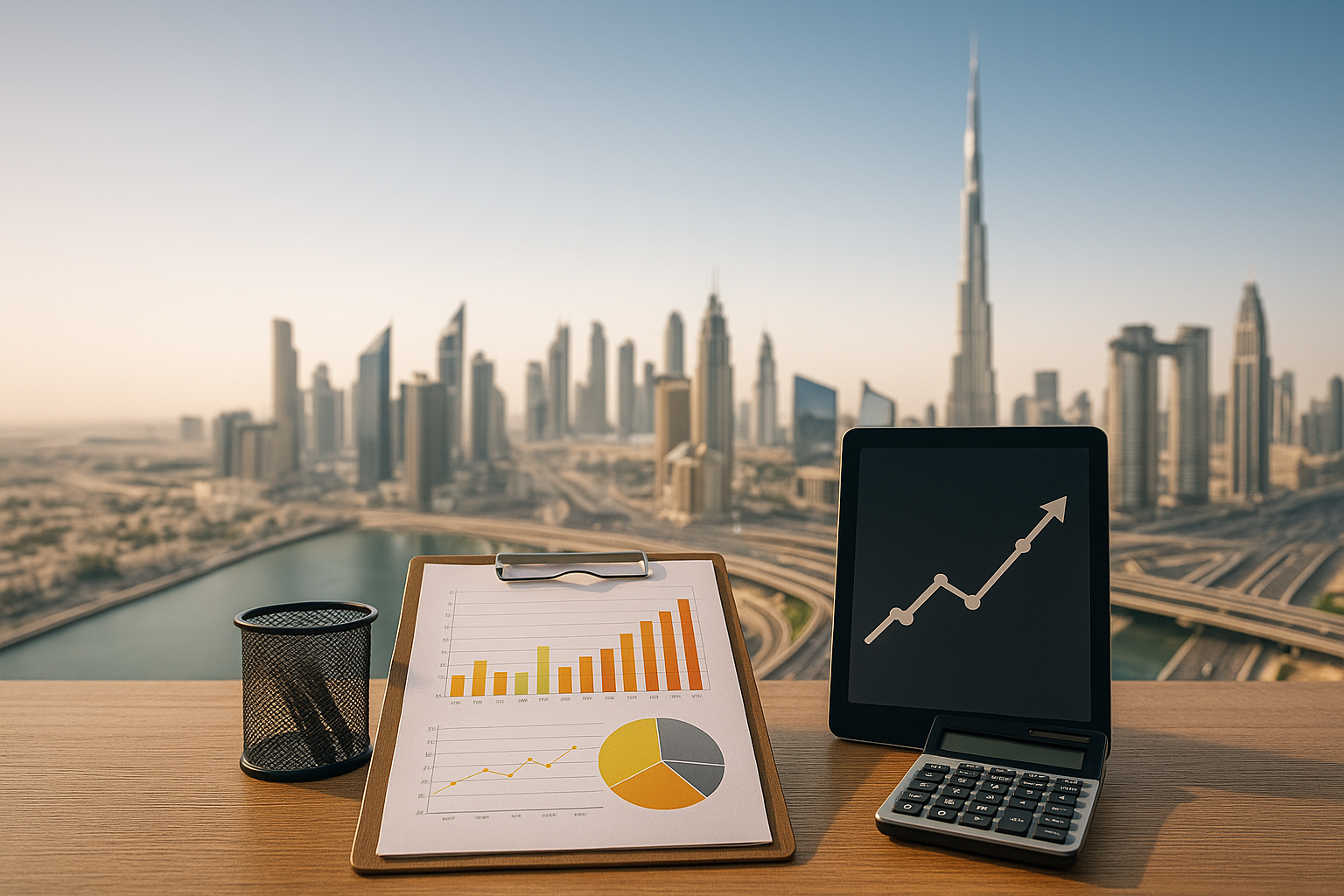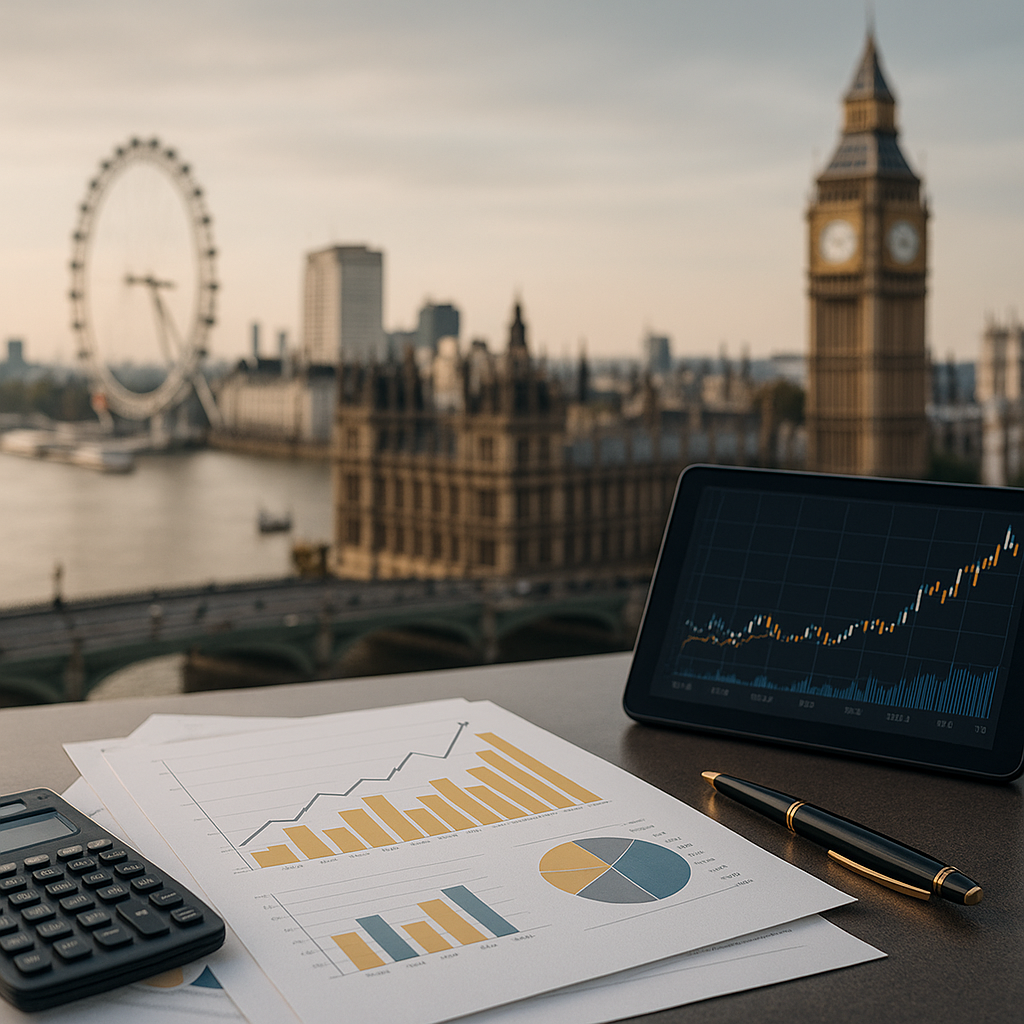Fueled by its strategic location, the benefit of tax-free profits, and high expected rental returns of 7% in 2025, Dubai's real estate market is thriving. Reports from the Dubai Public Debt Management Office indicate a substantial level of activity in 2024, with 226,000 transactions totaling AED 761 billion. This strong performance has attracted a significant influx of new capital, with a notable 55% increase in first-time investors.
As a global hub connecting three continents, Dubai’s thriving economy and investor-friendly policies make it a safe and lucrative destination for real estate investment.
With that being said, if you are wondering whether it is safe to invest in Dubai real estate, we are going to help you out. In what follows, we will explore this topic further and provide you with a better picture of why Dubai remains a top choice for real estate investors.

Why You Should Invest in Dubai Real Estate
Dubai has established itself as a premier global destination for long-term real estate investment, and for good reason. If you are considering property in this dynamic city, we will outline the advantages and important factors to keep in mind.
1. Prime Global Hub
Dubai's pivotal position at the intersection of Asia, Africa, and Europe makes it a key entry point to the Middle East and a natural hub for global trade. In 2024, the UAE’s import and export trade grew by 8.4% and 6.6%, respectively, which shows Dubai’s role as a key trade and logistics hub.
This strategic advantage, much like centuries ago for merchants, now draws corporations seeking to capitalize on its bustling ports and airports that effortlessly link international markets and create fertile ground for investment.
This legacy of facilitating commerce has cultivated a vibrant environment of cultural exchange and economic growth, solidifying Dubai's status as a thriving center for profitable ventures.
2. Thriving Economy and Global Investment
Thanks to a booming and diverse economy, Dubai has become a prominent global business and financial hub. Its location at the intersection of Europe, Asia, and Africa, alongside its modern infrastructure, excellent amenities, and tax-free status, strongly attracts foreign direct investment.
As reported by Dubai Public Debt Management Office, Dubai attracted 110,000 new investors to its real estate sector in 2024, a 55% increase, with 217,000 investments valued at AED 526 billion.
This has lured many international companies and entrepreneurs to establish their bases in Dubai, driving economic growth and fostering a competitive business landscape. As a result, Dubai provides a safe and supportive environment for real estate investments.
3. A Secure Haven for Property Investment
Recognizing that investment often carries inherent risks, those looking to invest prioritize minimizing these risks to maximize profits. Dubai offers a solid and stable real estate market, a direct result of the strict laws and regulations established by the government. This transparent legal system guarantees the security and rights of investors.
Unlike the often-volatile property markets in many major global cities, Dubai's real estate sector demonstrates remarkable stability. Effective governance has cultivated strong investor trust in the city, shielding them from potential instability. Consequently, Dubai offers a favorable environment that greatly enhances its appeal for property investment.
4. A Spectrum of Real Estate Investment Choices
Dubai offers a wide array of investment opportunities to suit every type of investor. Whether you are looking for a compact studio or a large villa in well-planned residential areas, you will find diverse home options.
For commercial ventures, luxurious investments are available in offices, retail spaces, and the hospitality sector. Moreover, investing in off-plan properties presents the potential for increased value upon completion.
Consequently, Dubai has become a recognized safe and attractive destination for global investors. Its consistent political stability, clear legal framework, and transparent property market are seen worldwide as a valuable investment opportunity.
5. Free Zones and Tax-Free Benefits
Dubai's free trade zones have been crucial to its success in promoting global trade. They offer significant advantages like full foreign ownership and fast business setup. By simplifying regulations, Dubai has become a dynamic business center. In fact, Dubai ranks in the global top 20 for ease of doing business, which is driven by Free Trading Zones (FTZ) policies that minimize bureaucratic red tape and offer industry-specific infrastructure.
This has led to economic growth and a surge in new businesses. Dubai's favorable business environment supports easy startup and expansion for entrepreneurs, which increases the profitability of real estate investments.
More importantly, Dubai offers a largely tax-free environment, with no income or capital gains tax. This makes real estate investment very attractive since investors avoid significant tax costs. The increased liquidity for investors makes Dubai a wise choice for your investments.

Major Considerations for Dubai Real Estate Investors
Even in a booming market like Dubai, smart investors know to look before they leap. Just like any other real estate sector globally, Dubai's isn't entirely risk-free. Being aware of the different potential challenges of purchasing property in Dubai can provide you with essential information. That’s why, in this section, we’d like to share a number of challenges that you must take into account.
1. Regulatory Challenges
While Dubai offers property ownership to foreign buyers, it is important to be informed about the specific rules. For example, non-UAE nationals can only purchase residential and commercial properties in defined freehold areas. Therefore, understanding these zones and the types of properties you can buy is necessary.
In addition, specific regulations govern mortgage options for foreign buyers in Dubai. To gain clarity on your choices, we recommend that you consult with an experienced mortgage advisor in the UAE and a knowledgeable real estate agent.
2. Mortgage Costs for Dubai Property Investments
When exploring the most promising investments in Dubai's real estate market, it is crucial to factor in the various mortgage charges and fees associated with financing a property purchase.
Banks and financial institutions in Dubai typically apply several fees, such as processing, valuation, and mortgage registration costs. These expenses can substantially affect the total cost of financing property deals and should be carefully considered when evaluating the financial viability of an investment.
3. Financial Risks and Hidden Costs
Investing in real estate in Dubai can be an attractive prospect, but it comes with significant financial risks that buyers must carefully consider. A common misconception among property buyers is that their financial obligations are fulfilled once the purchase price is paid.
However, this assumption overlooks the array of hidden costs and ongoing expenses associated with property ownership in Dubai, which can substantially impact the overall investment.
Pre-Purchase Hidden Costs
Before even finalizing the purchase of a property, buyers are required to cover several additional expenses. These include:
- Home Insurance: A mandatory cost to protect the property against unforeseen damages or losses.
- Dubai Land Department (DLD) Fees: These fees are typically set at 4% of the property’s purchase price and are required for transferring ownership.
- Real Estate Brokerage Fees: Agents often charge a commission for facilitating the transaction.
- Property Registration Fees: Additional charges for registering the property with the DLD, which can vary based on the property’s value.
- Legal and Conveyancing Fees: Hiring a lawyer or conveyancer to make sure that the transaction complies with local regulations adds to the upfront costs.
Post-Purchase and Ongoing Costs
The financial commitments do not end with the acquisition of the property. After the purchase, buyers encounter a range of ongoing expenses, such as:
- Property Management Fees: If the property is rented out or managed by a third party, additional fees may apply.
- Renovation and Furnishing Costs: Many buyers, particularly those purchasing off-plan properties, need to budget for interior fit-outs, furniture, or upgrades to make the property livable or marketable.
What is the Average Return on Investment in Dubai Real Estate?
Investors in Dubai's real estate market can expect a high and improving return on their capital. With an average rent-to-value ratio of 6-8%, Dubai offers better returns than mature markets such as New York and London. Additionally, the comfortable property price index makes it more affordable for investors to cover the initial purchase expenses.
What is the Minimum Investment in Dubai Real Estate?
To obtain UAE residency through real estate investment, the minimum requirement is purchasing property worth at least AED 1 million for investors aged 55 and above (qualifying for a 5-year visa). For investors of any age seeking a 10-year visa, the minimum property investment is AED 2 million.
Final Words: Is it Safe to Invest in Dubai Real Estate?
Investing in Dubai’s real estate market is generally considered safe and lucrative, provided certain precautions are taken. Dubai’s appeal as an investment destination is further enhanced by its growing population and consistent demand for properties, which contribute to a highly profitable real estate market.

The safety of investing in Dubai’s real estate is bolstered by the government’s proactive measures to protect investors. Stringent regulations and laws have been put in place to safeguard the interests of buyers and create a secure and transparent environment.
For instance, the Dubai Land Department (DLD) oversees property transactions and enforces strict guidelines to ensure fairness and accountability. Also, the Real Estate Regulatory Authority (RERA) plays a critical role in regulating developers and real estate agents, further enhancing investor confidence. These measures help mitigate risks and provide a stable framework for property investments.
However, to maximize safety and profitability, you need to choose properties that are constructed by reputable developers. Working with registered real estate agents who are licensed by RERA is equally important, given that they will provide expert guidance and guarantee compliance with local regulations.
To conclude, Dubai’s real estate market offers a compelling combination of safety and opportunity, underpinned by strong government oversight and a vibrant market driven by consistent demand.
Even though there are risks, as with any investment, they can be effectively managed through careful planning and informed decision-making. For those willing to take the necessary precautions, Dubai remains one of the world’s premier destinations for real estate investment.
























Discussion